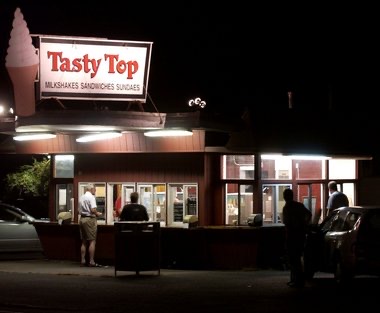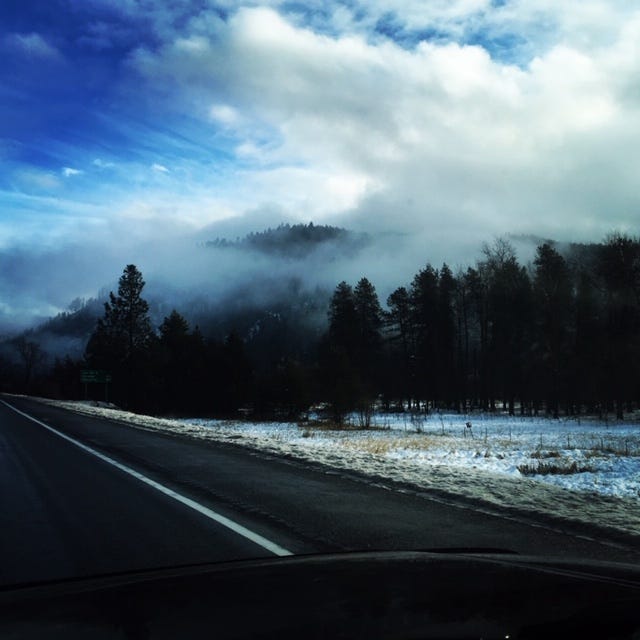
1.
I read the rejection at dawn.
Thanks for the opportunity to read… I’m sorry to say…
My fourth this week. I count a couple of blessings—I used to rack up form rejections from every literary journal , but now I often get personal rejections from the most “prestigious” journals (prestigious a slippery category, made slippier by the rise of the Internets) telling me that they loved my work but that this particular piece wasn’t right for them. The Near-Miss Champ, I’ve become.
But this rejection was more like a total miss. I blinked at my phone in the dark, rubbed my eyes, shifted in bed. My feet had yet to touch the floor.
…that after review by the editorial staff, we came to a decision not to…
Who the fuck, I thought, sends rejections at 3 a.m.?
Other nightcrawling writers.
Delete. Stumble. Coffee.
2.
I spent part of that day cobbling together a character description of a good friend, to be added to a story on my blog. It’s treacherous to write about the living. To summarize in a few words the whole of a man made of too many parts to mention. I constantly misjudge. I say too much or too little. I trample or neglect.
I aimed to honor him honestly, to capture something of his growing importance to me, but without sentiment. Raw but respectful. After an hour or two of word-wrestling, it said what I meant it to say. I clicked “publish” feeling fine, flying high at the altitude and speed I only gain after a day of good writing.
3.
Prestigious literary journals? my co-worker asked. Who reads those?
4.
Massive failure.
In a measured but respectful voice, my good friend listed the ways in which my words had caused him pain. The ways in which he felt misheard. Misunderstood. His complexities, reduced.
I’d made assumptions. Said too much. Exposed him online for an audience whose motives he could only imagine. Assigned him nakedness when he preferred to stay clothed.
To confront me, he’d had to rehearse. He’d picked his words carefully, to protect my feelings. He saw my motives and stated his appreciation, repeatedly.
We’d be fine, probably. Soon.
But tonight I’m a shit friend. That was my thought.
I don’t know what he thought, beyond what he’d already told me. I knew he’d left some things unsaid. The extent, maybe, of his doubt in me. The new, tighter limits of his trust.
To endure as friends, he’d left some words unspoken.
5.
In Boston I worked for a major online retailer on a voiced virtual assistant that I’ll call Amanda. Hired to a ragtag team of language deconstructionists—linguists and English majors fracturing the sentences that consumers spoke to Amanda in the privacy of their homes. We broke down each line, annotated phrases, categorized each word. Our data was then handed to modelers who worked some kind of technical magic—mystifying to my English-major brain—that supposedly helped Amanda learn how to respond more accurately over time.
A young transgender man, whip-smart and wiry, worked on my team. A dozen of us clicking away on laptops in a conference room, in the weeks before I was made permanent and assigned a desk. Once, right in front of the young man, I slipped and referred to him as “she.” His friend corrected me, and I stammered an apology, mortified at my mistake, a spotlight thrown on my decrepit age, on my generation’s clumsy handling of the new rules for pronouns.
“It’s okay,” he told me, but his face said otherwise. He turned away and looked out the conference room window.
6.
Unlike other relationships that have a purpose beyond themselves and are clearly delineated as such (dentist-patient, lawyer-client, teacher-student), the writer-subject relationship seems to depend for its life on a kind of fuzziness and murkiness, if not utter covertness, of purpose. If everybody put his cards on the table, the game would be over. The journalist must do his work in a kind of deliberately induced state of moral anarchy.”
– Janet Malcolm, The Journalist and the Murderer
7.
I reacted like an asshole.
I snapped at my good friend and walked away, paced, returned, walked away and paced some more. I pulled out my laptop and de-posted the blog. The faulty description of his persona, now hidden from view.
My high-altitude flight had smacked into a brick wall. I could see myself from outside myself, but I couldn’t pull out of this nosedive. Worse, I’d been caught in the emperor’s new clothes. Thinking I’d done an honorable thing, instead I’d caused him harm.
“No,” he said. “You didn’t hurt me. That would be deliberate. Your words caused me pain.”
How had I gotten it so wrong? How had I failed so badly, at something I was supposedly good at?
l took it the worst way possible. Personally. My words were me. Their failure was me.
8.
The strangest people assume that you’ll write about them. Usually the newest, most casually superficial acquaintances half-joke that their “crazy” hi-jinks will end up in your prose. You give an awkward smile, because the thought had never occurred to you, and now, stubborn, you secretly vow to thwart them with zero written words.
9.
The ninth of AA’s 12 steps states that we make direct amends to the people we’ve harmed, “unless to do so would injure them or others.”
Knowing when the truth will cause more harm than good takes time and a half dose of maturity to develop. The point isn’t to unburden yourself at the expense of others.
Addicts aren’t gifted in this direction. That’s why it’s not the first step.
10.
Amanda records her conversations with her owners and stores them in the cloud. Over the course of a year I heard pretty much everything one could say to her, a glimpse—I’m tipping here into melodrama—into the troubled soul of a country.
Top oven, 350 degrees. Turn off irrigation, zone one. Amanda, do I need an umbrella tomorrow? I know you heard me you piece of shit. Thermostat 68. Magic Eight Ball. Amanda, will I be rich and famous? Find me Red Lobster. Amanda, how did Whitney Houston die? How did Prince die? Amanda, play “Rehab.” Repeat. Amanda, will Antonio ever look at me? Will anyone ever love me? Do you love me? Say, “I love you Allison.” Say, “I will never leave you.” Tell us a joke. No, tell us a fag joke. Tell us a Muslim joke.
11.
Is anyone reading this? If not, do I exist?
12.
Once, after interviewing a family member, I showed him a rough draft of the chapter he appeared in. With his permission, I’d written honestly about his marriage and divorce, his affairs, the feelings he’d crushed.
Scrawny? he said in disbelief. You described me as scrawny?
In nonfiction, character is a form of murder. To create one, you must kill off half a human. To be honest is to cause harm. And you’ll never know which words cut too close, till the wounded come back around to your doorstep. Pulling from their wound the one word you’d assumed was the safest.
13.
Ouisa: And we turn him into an anecdote to dine out on, like we’re doing right now! But it was an experience. I will not turn him into an anecdote. How do we keep what happens to us? How do we fit it into life without turning it into an anecdote? With no teeth, and a sad punch line you’ll mouth over and over for years. “Oh, that reminds me of that impostor. Oh, tell the one about that boy.” And we become these human jukeboxes, spilling out these anecdotes. But it was an experience. How do we keep the experience?”
—John Guare, Six Degrees of Separation
14.
Hushed-tone praise of flawless humans is like cotton candy—sweet, cloying, and dissolvable upon touch, leaving the reader empty and alone.
You think the dead are safe. But you’re wrong. Free from the consequences of their reaction, you write an honest portrait. Later, an email in your inbox from a relative:
How could you betray her memory? You’re an ungrateful son.
15.
self-absorbed
adjective : usually disapproving
so involved with yourself that you do not think about anyone else; self-centered
16.
How do you make a White Russian? Amanda, text Jen: “I can’t pick you up from work I’m too drunk.” Where is the Middle East? Amanda, are you a lesbo? Can you get AIDS from kissing? Can you die of loneliness? Am I gonna get laid tonight? Why won’t my wife have sex with me? Why don’t you come over here and blow me? Weather, please. Weather. I said weather, Amanda. Fucking robot.
17.
I wanted my good friend, whom I’d described so painfully, to leave my house. I wanted to withdraw and bandage my ego in peace. I drove him home. He waved good-bye to me as he went up his front walk. Soon, we’d be fine. But just then, right there, all I wanted to do was to go home and write about it. To figure out how I felt. To salvage with words what my words had marred.
18.
What does “agnostic” mean? Give me rent. Amanda say “vagina.’ Add donuts to the grocery list. Amanda, help me snort this line it’s fucking EPIC. Amanda, who’s your daddy? I love you, Amanda. What is date rape? Amanda, what is consent? Amanda, shuffle. Amanda, skip. Skip. Tell me something funny. Amanda, that didn’t help at all. You’re a shit. You’re a slut. You’re the only person that listens to me.















